-
 bitcoin
bitcoin $87959.907984 USD
1.34% -
 ethereum
ethereum $2920.497338 USD
3.04% -
 tether
tether $0.999775 USD
0.00% -
 xrp
xrp $2.237324 USD
8.12% -
 bnb
bnb $860.243768 USD
0.90% -
 solana
solana $138.089498 USD
5.43% -
 usd-coin
usd-coin $0.999807 USD
0.01% -
 tron
tron $0.272801 USD
-1.53% -
 dogecoin
dogecoin $0.150904 USD
2.96% -
 cardano
cardano $0.421635 USD
1.97% -
 hyperliquid
hyperliquid $32.152445 USD
2.23% -
 bitcoin-cash
bitcoin-cash $533.301069 USD
-1.94% -
 chainlink
chainlink $12.953417 USD
2.68% -
 unus-sed-leo
unus-sed-leo $9.535951 USD
0.73% -
 zcash
zcash $521.483386 USD
-2.87%
What is Ethereum's ERC-20 standard?
As per the ERC-20 standard, the `balanceOf` function efficiently retrieves the account balance for a specified token within the Ethereum ecosystem, facilitating seamless token management and transfer.
Feb 17, 2025 at 07:00 pm
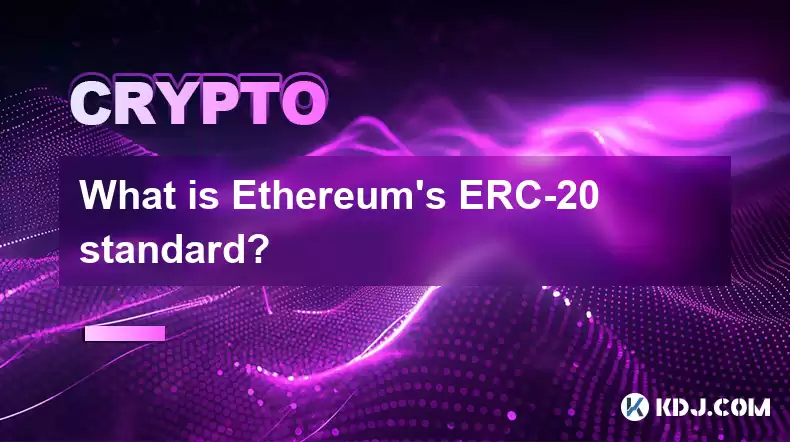
Key Points
- Overview of Ethereum's ERC-20 Standard
- Technical Specifications of the ERC-20 Token Interface
- ERC-20 Token Issuance and Deployment
- ERC-20 Token Management and Transfer
- ERC-20 Token Use Cases and Benefits
Overview of Ethereum's ERC-20 Standard
- The ERC-20 standard defines a set of rules and guidelines for creating and deploying tokens on the Ethereum blockchain.
- It ensures interoperability and compatibility between different tokens and token applications.
- ERC-20 tokens can represent various assets, including cryptocurrencies, stablecoins, utility tokens, and security tokens.
- This standard has facilitated the explosive growth of decentralized finance (DeFi) and various token-based applications on the Ethereum network.
Technical Specifications of the ERC-20 Token Interface
The ERC-20 interface includes a series of mandatory functions and events, such as:
totalSupply: Returns the total number of tokens in existence.balanceOf: Returns the token balance of a specific account.transfer: Transfers tokens from one account to another.allowance: Returns the number of tokens that one account has allowed another account to spend on its behalf.approve: Allows an account to spend a specified number of tokens on behalf of another account.
- These functions enable developers to interact with ERC-20 tokens in a standardized and efficient manner.
ERC-20 Token Issuance and Deployment
- To create an ERC-20 token, developers can use smart contract templates or custom code.
- The smart contract specifies the token's name, symbol, and other attributes, such as its total supply and tokenomics.
- Developers can deploy the token contract on the Ethereum blockchain using a cryptocurrency wallet or an automated deployment tool.
- After deployment, the ERC-20 tokens can be purchased, traded, and transferred within the Ethereum ecosystem.
ERC-20 Token Management and Transfer
- ERC-20 tokens can be transferred between Ethereum addresses using the
transferfunction. - To manage tokens on behalf of another account, the
approvefunction can be used to grant a specific allowance. - Transactions involving ERC-20 tokens require payment of gas fees in Ether (ETH) to incentivize miners to process the transactions.
- Users can monitor token transactions through blockchain explorers or user interfaces provided by exchanges and wallets.
ERC-20 Token Use Cases and Benefits
- Cryptocurrencies: ERC-20 tokens can represent cryptocurrencies with their own monetary value and use cases.
- Stablecoins: Stablecoins are ERC-20 tokens that are pegged to a fiat currency, such as the US dollar, to maintain price stability.
- Utility Tokens: Utility tokens provide access to specific services or features within a decentralized application or ecosystem.
- Governance Tokens: Governance tokens grant holders voting rights to influence the development and governance of a project or ecosystem.
- Security Tokens: Security tokens represent fractional ownership of real-world assets, such as stocks, bonds, or real estate.
FAQs
What are the advantages of ERC-20 tokens?- Interoperability and compatibility within the Ethereum ecosystem.
- Ease of issuance and deployment.
- Support for a wide range of token use cases.
- Accessibility to a vast and active community of developers and users.
- Use smart contract templates or custom code to define the token's attributes.
- Deploy the token contract on the Ethereum blockchain.
- Set the token's initial supply and distribution.
- ERC-20 is a specific standard for creating tokens on the Ethereum blockchain.
- Other popular token standards include ERC-721 (NFTs), ERC-223 (advanced token transfers), and BEP-20 (Binance Smart Chain).
- Each standard has its own unique specifications and use cases.
Disclaimer:info@kdj.com
The information provided is not trading advice. kdj.com does not assume any responsibility for any investments made based on the information provided in this article. Cryptocurrencies are highly volatile and it is highly recommended that you invest with caution after thorough research!
If you believe that the content used on this website infringes your copyright, please contact us immediately (info@kdj.com) and we will delete it promptly.
- Bitcoin Under Pressure: Galaxy Analyst Eyes $58K Amidst ETF Outflows and Weakening Debasement Narrative
- 2026-02-03 19:00:02
- Crypto Market Stabilizes as Bitcoin Rebounds; Key Factors Driving the Recovery
- 2026-02-03 19:10:02
- ETH Rebound Ignites L3 Architecture Race: Liquid Chain Eyes the Fragmentation Fix
- 2026-02-03 19:10:02
- Halle Berry Unpacks Prom Queen Racism and Hollywood's Persistent Barriers
- 2026-02-03 19:40:02
- Epstein Files, Israel, and Bitcoin Network: Unpacking the Weekend's Crypto Turmoil and Lingering Control Claims
- 2026-02-03 19:40:02
- Elon Musk, SpaceX, Dogecoin: To the Moon and Beyond with AI-Powered Dreams
- 2026-02-03 19:35:01
Related knowledge
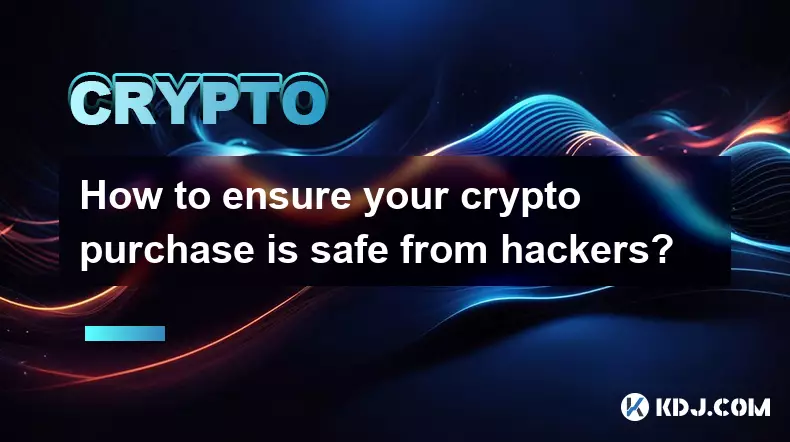
How to ensure your crypto purchase is safe from hackers?
Jan 28,2026 at 11:19pm
Secure Wallet Selection1. Choose hardware wallets for long-term holdings—devices like Ledger and Trezor isolate private keys from internet-connected s...
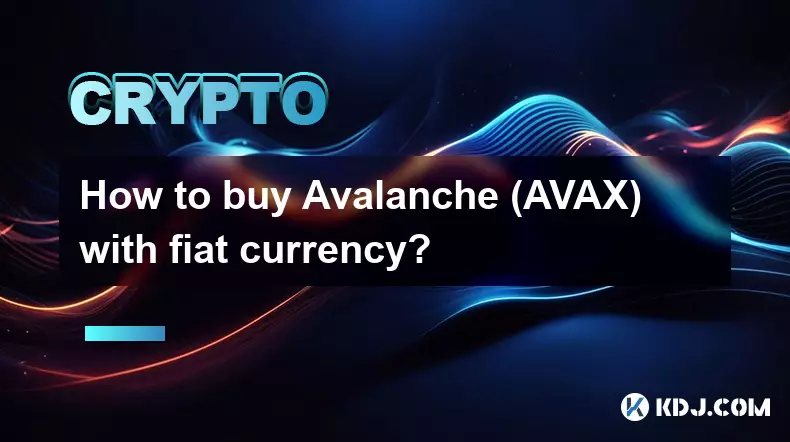
How to buy Avalanche (AVAX) with fiat currency?
Jan 29,2026 at 12:40pm
Choosing a Reliable Exchange Platform1. Identify exchanges licensed in your jurisdiction that support AVAX trading pairs with major fiat currencies li...
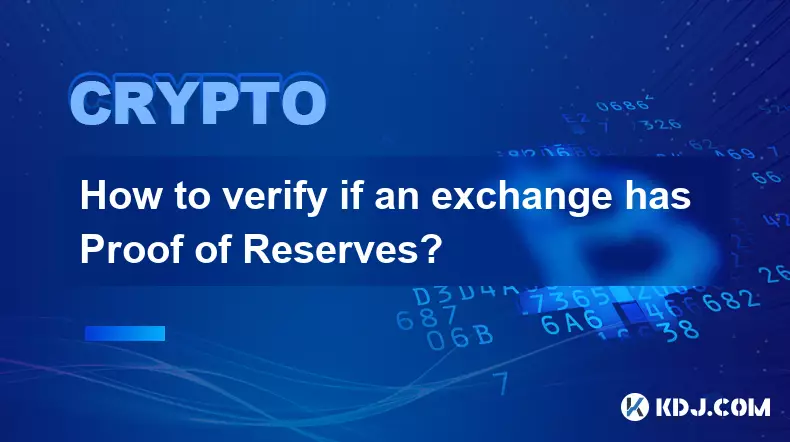
How to verify if an exchange has Proof of Reserves?
Jan 30,2026 at 06:39am
Understanding Proof of Reserves1. Proof of Reserves (PoR) is a cryptographic audit mechanism that demonstrates an exchange holds sufficient on-chain a...
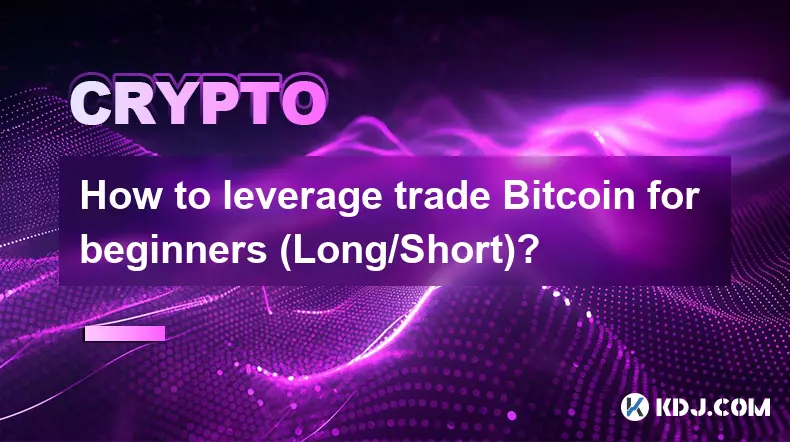
How to leverage trade Bitcoin for beginners (Long/Short)?
Jan 29,2026 at 03:19pm
Understanding Bitcoin Price Movements1. Bitcoin’s price is heavily influenced by macroeconomic indicators such as interest rate decisions, inflation d...
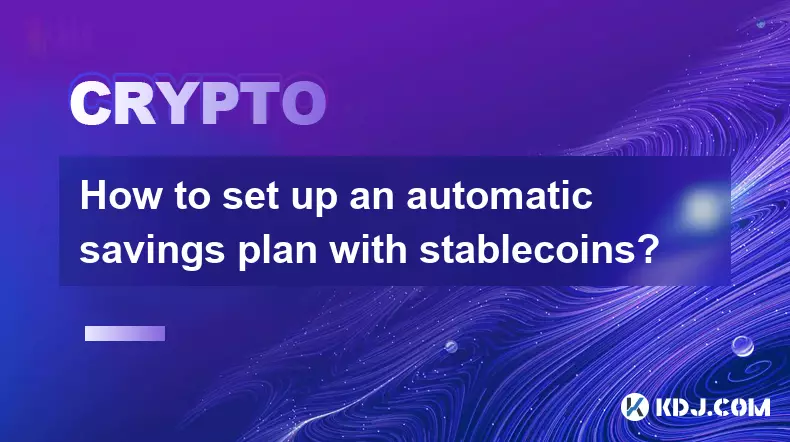
How to set up an automatic savings plan with stablecoins?
Jan 29,2026 at 06:39am
Understanding Stablecoin Savings Mechanics1. Stablecoins are digital assets pegged to fiat currencies like the US dollar, designed to minimize volatil...
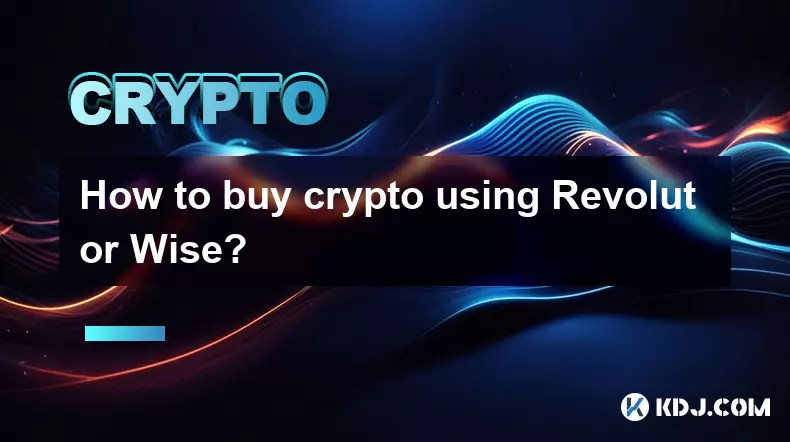
How to buy crypto using Revolut or Wise?
Jan 28,2026 at 11:00pm
Setting Up Your Revolut Account for Crypto Purchases1. Download the Revolut app and complete identity verification using government-issued ID and a se...

How to ensure your crypto purchase is safe from hackers?
Jan 28,2026 at 11:19pm
Secure Wallet Selection1. Choose hardware wallets for long-term holdings—devices like Ledger and Trezor isolate private keys from internet-connected s...

How to buy Avalanche (AVAX) with fiat currency?
Jan 29,2026 at 12:40pm
Choosing a Reliable Exchange Platform1. Identify exchanges licensed in your jurisdiction that support AVAX trading pairs with major fiat currencies li...

How to verify if an exchange has Proof of Reserves?
Jan 30,2026 at 06:39am
Understanding Proof of Reserves1. Proof of Reserves (PoR) is a cryptographic audit mechanism that demonstrates an exchange holds sufficient on-chain a...

How to leverage trade Bitcoin for beginners (Long/Short)?
Jan 29,2026 at 03:19pm
Understanding Bitcoin Price Movements1. Bitcoin’s price is heavily influenced by macroeconomic indicators such as interest rate decisions, inflation d...

How to set up an automatic savings plan with stablecoins?
Jan 29,2026 at 06:39am
Understanding Stablecoin Savings Mechanics1. Stablecoins are digital assets pegged to fiat currencies like the US dollar, designed to minimize volatil...

How to buy crypto using Revolut or Wise?
Jan 28,2026 at 11:00pm
Setting Up Your Revolut Account for Crypto Purchases1. Download the Revolut app and complete identity verification using government-issued ID and a se...
See all articles

























![Discontinuum by: ArchitechGD 100% (1 coin) (Mobile) Geometry Dash [2.2] Discontinuum by: ArchitechGD 100% (1 coin) (Mobile) Geometry Dash [2.2]](/uploads/2026/02/03/cryptocurrencies-news/videos/origin_69814d99e6b61_image_500_375.webp)
















































